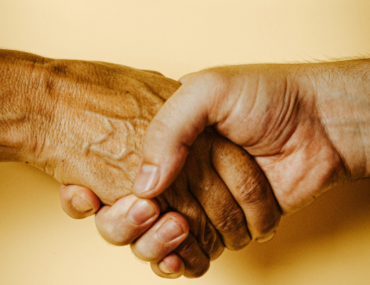What is the “Entourage Effect”?
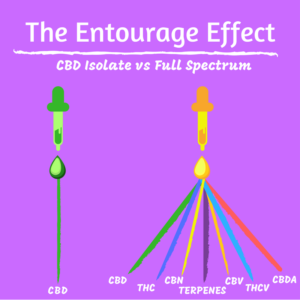
The Entourage Effect is the idea that different compounds work in synergy in order to produce better effects, as opposed to what the effects would be if they had been consumed individually. There has been a lot of debate regarding the veracity of this concept – Cannabis includes not only several different cannabinoids, but also terpenes. Cannabinoids can modify each other’s effect when taken in conjunction – like CBD can dampen the “high” and negative side-effects associated with THC. Terpenes are aromatic compounds found not only in cannabis, but also other plants, fruits, vegetables, and even animals – Like every stoner’s spirit animal, the sloth! Similarly to cannabinoids, certain terpenes have anti-inflammatory, anxiolytic, sedative, and mood boosting effects, amongst the myriad other applications they are useful for. They have also shown potential to modulate THC.

The first mention of The Entourage Effect was in a 1998 study by Israeli researchers performed on mice. The study was led by Raphael Mechoulam, the first scientist to isolate and synthesize THC. They found that while some inactive biological compounds alone may not interact with our CB1 and CB2 receptors, they do support the activity of dominant endogenous cannabinoids. In 1999, Mechoulam and Ben-Shabat supported this with another study that showed botanical drugs are often more effective than their isolated components.
– A Vermont study from 1999 found that terpenes and flavonoids can modulate anxiety and other negative side-effects associated with THC. It also found that other volatile compounds can increase cerebral flow and enhance cortical activity (responsible for language, memory, reasoning, thought, learning, decision-making, emotion, intelligence and personality), kill respiratory pathogens (germs), and produce anti-inflammatory effects.
– A 2010 study posted on The Journal Of Pain and Symptom Management found that a combination of THC and CBD was a more effective pain treatment than the isolated versions of the cannabinoids (fun fact: there is an FDA-approved version of a THC:CBD medication, Sativex! There’s also a CBD-only medicine called Epidiolex).
– Another Israeli study, this one led by Ruth Gallily and published in 2015, found that a full-spectrum CBD extract is consistently effective for pain relief at any dose, while a CBD isolate extract has biphasic effects – it provides relief at low doses but will lose effectiveness at higher doses.
– More recently, a 2018 study by researchers from Complutense University in Spain found that the anti-tumor action of a full-spectrum cannabis extract was more potent – relating to its efficacy in slowing down cancer cell proliferation, and not the “high” – than the isolated THC. They concluded that the presence of CBG and THCA boosted the anti-tumor properties of the medicine.

– Brazilian researchers performed a meta-analysis of 11 studies with a total of 670 patients performed using CBD isolate extracts versus full-spectrum and supported the claims that full-spectrum CBD extracts require a lower dose in order to be effective. CBD-isolates are effective but require a higher dose which, as mentioned previously, could have a biphasic effect and lose its efficacy. 71% of patients improved with high CBD full-spectrum extracts, in contrast with 36% who felt improvement on the CBD isolate extraction.
Most studies used cannabis extracts… Am I absorbing terpenes and minor cannabinoids when smoking?
Each cannabinoid and terpene has a different boiling point, meaning the temperature that will ultimately degrade that compound. If you get into cannabis concentrates, you might hear a lot about “low temperature dabs”. Lower temperature dabs will preserve more of the extract’s phytocannabinoids and terpenes, providing a tasteful dab with full-spectrum benefits. Some consumers prefer to see more clouds and opt for higher temperature.
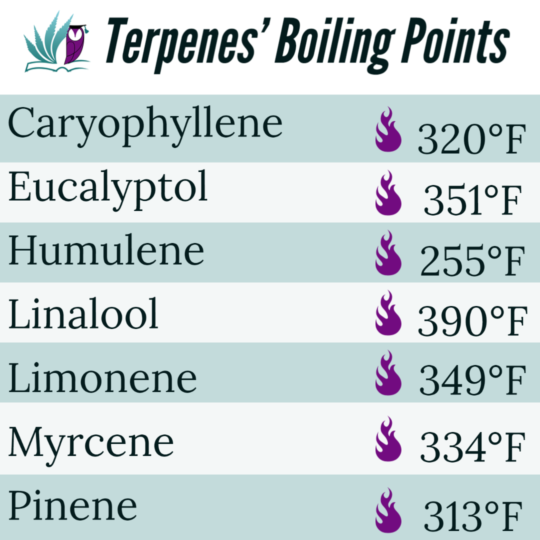
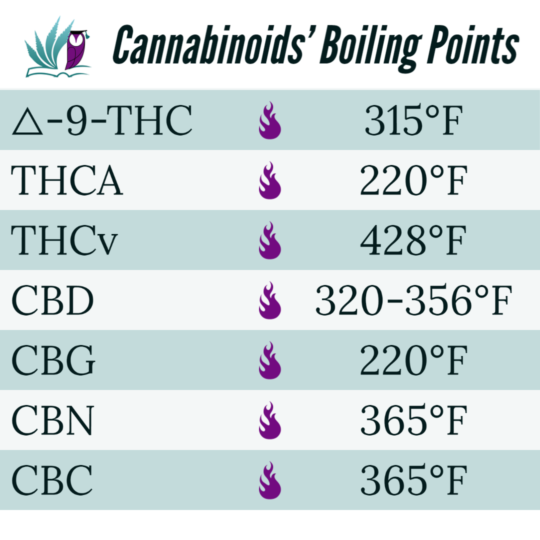
What if I only smoke flower? Am I getting any terpenes?
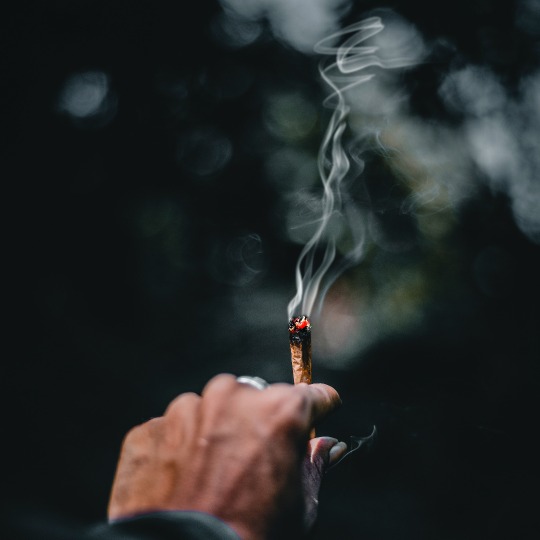
When you light up a joint, that cherry can reach up to 600°F – think of all the goods wasted! That is why here at Canna~Wise Medicine we make sure our patients learn that vaporization is not only less harmful, but also more beneficial since it gives you control over the temperature, providing you with more cannabinoids and terpenes. A study found that when smoking, you’ll absorb about 20-37% of the THC content in the flower. Considering flowers have an average of 20% THC, the average joint (1g) carries around 60 to 150mg of THC – Click here to learn how to calculate the mg of THC in your joint!
There are some amazing dry-herb vaporizers available in the market that allow you to put the Entourage Effect to the test:
Yes, yes, all the different options can be a little overwhelming! A good starting point – if we may suggest – would be the goody-box from HUUE which includes 3 tins of their pressed-flower pucks and a G Pen Dash for only $98! Each tin comes with 7 pucks, and each puck carries up to 7 sessions each! This makes it the most affordable and worthwhile investment when first dipping your feet into the world of dry-herb vaporizers.


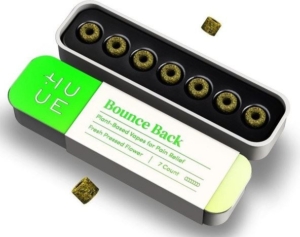
Conclusion:
As it’s usually the case when it comes to cannabis, more studies are needed in order to pinpoint exactly the mechanisms through which the entourage effect boosts cannabinoid medicines’ efficacy, but available research looks promising! More and more we distance ourselves from terms like Indica and Sativa to refer to the psychoactive and physical benefits that cannabis provides. You might find research trying to refute this concept, but what’s most important is you getting to know your body and your ECS to get the most out of your natural medication! You can do that by tracking your usage (strain names and their cannabinoid and terpene profiles) and testing different methods of consumption. Remember to always start low and go slow when trying edibles and tinctures!
Try the app Youkti to track your usage, or send us an e-mail for a printable PDF of our cannabis journal!
We hope that this guide can help you on your journey towards a happier, healthier life! Finding the right product might take a lot of trial and error, but we are here to help you in every step of the way if necessary. Give us a call at 774-321-6057 with any questions or concerns. If you’d like to get certified for the Medical Cannabis Program in Massachusetts, we will be more than happy to assist!
Written by Letticia Freitas, Social Media and Outreach Manager at Canna~Wise Medicine and Canna~Collab Education.
Contact: letticia@cannawisemed.org – 774-321-6057


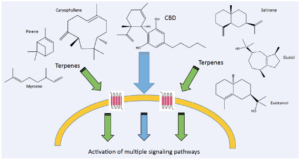
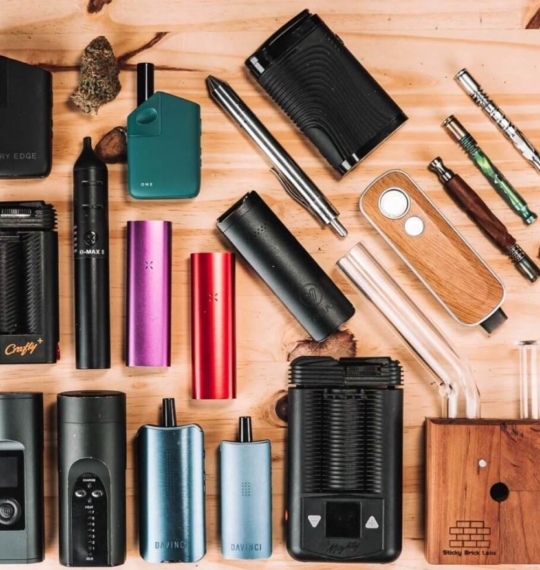 v
v